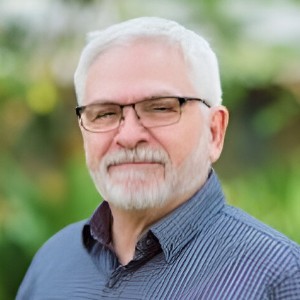Start date November 19, 2024
Time 4:00 AM - 6:00 AM EST
Price 79.00 USD when you register before August 01, 2024 (89.00 USD after that)
Register before November 19, 2024
In the light of insights from practice, theory and contemporary neuroscience, Dr. Howard Bath will review old and new approaches to trauma informed care, the ‘safety' imperative, the management of problematic behaviours, and the centrality and purpose of connections.
Would you like to stay informed about all our courses and webinars? Sign up for our free newsletter!
From the perspective of 45 years working with children and young people in care, worldwide expert Dr. Howard Bath (Australia) looks back at the received wisdom in the field and how this has significantly changed in the light of theory, research and contemporary neuroscience. Some older ideas such as the importance of active listening have withstood the test of time. Others, such as the reliance on behavioral strategies, have however been discarded or significantly modified.
After participating in this online masterclass, participant will be able to:
Introduction by the moderator Dr. Guido van de Luitgaarden | 5 minutes
Lecture by Dr. Howard Bath "What we didn't know then: Contemporary neuroscience and what really matters in trauma informed care for children | 90 minutes
Q&A with Dr. Howard Bath | 25 minutes
Closing remarks by the moderator | 5 minutes


Dr Howard Bath has had a long career working with children and young people in the child welfare, youth justice and mental health systems in roles such as youth worker, house parent, program manager, agency director, and clinician. From 2008 to 2015 he was the inaugural Children's Commissioner in Australia's Northern Territory with a mission to ensure the wellbeing of vulnerable children receiving care, treatment, education and youth justice services.
Trained as a clinical psychologist, Howard has also provided direct clinical services for young people and their families as well as training and program support for agencies and schools across Australia and internationally. He has authored papers and reports on child protection, out of home care, family preservation and developmental trauma and is the lead author together with John Seita (Michigan, USA) of the book: The Three Pillars of Transforming Care: Trauma and resilience in the ‘other 23 hours', written for care workers, teachers, kinship carers and others who interact daily with children exposed to developmental trauma.
From the perspective of 45 years working with children and young people in care, Dr. Bath looks back at the received wisdom in the field and how this has significantly changed in the light of theory, research and contemporary neuroscience. Some older ideas (such as the importance of active listening) have withstood the test of time, while others (such as the reliance on behavioral strategies) have either been discarded or significantly modified. In this Masterclass, Howard Bath will address:


Dr. Guido van de Luitgaarden began his career as a social worker. He worked in social welfare and special education. After obtaining his Master's degree, he worked at Zuyd University of Applied Sciences as a senior lecturer and researcher. He was involved in educational development, policy and management teaching, and conducted research. In 2011, Guido obtained his doctorate from the University of Salford (UK) with a thesis on professional judgement and decision-making in child protection work. He also led a Master's program accredited by London Metropolitan University, where he taught the "Education and Supervision of Social Professionals" module. He gave lectures and guest lectures at universities in Izmit, Madrid, Riga, and Oxford.
He has previously conducted research for large welfare organizations and for a management development program within the Dutch Ministry of Security and Justice.
Guido is one of the managing directors of ECB-Education
Participants will receive a certificate of attendance if they attended the live stream in full or viewed the whole webinar on-demand.
A reduced attendance fee of 79.00 USD applies for those who register before August 01, 2024. After this date, the regular fee of 89.00 USD will be applied. This fee includes:
You can register via our registration form.
Can't make it yourself? Tell a colleague about this webinar!
Due to a limited number of available places, it is important to register in time to be sure of a place to participate.
To register immediately, click here